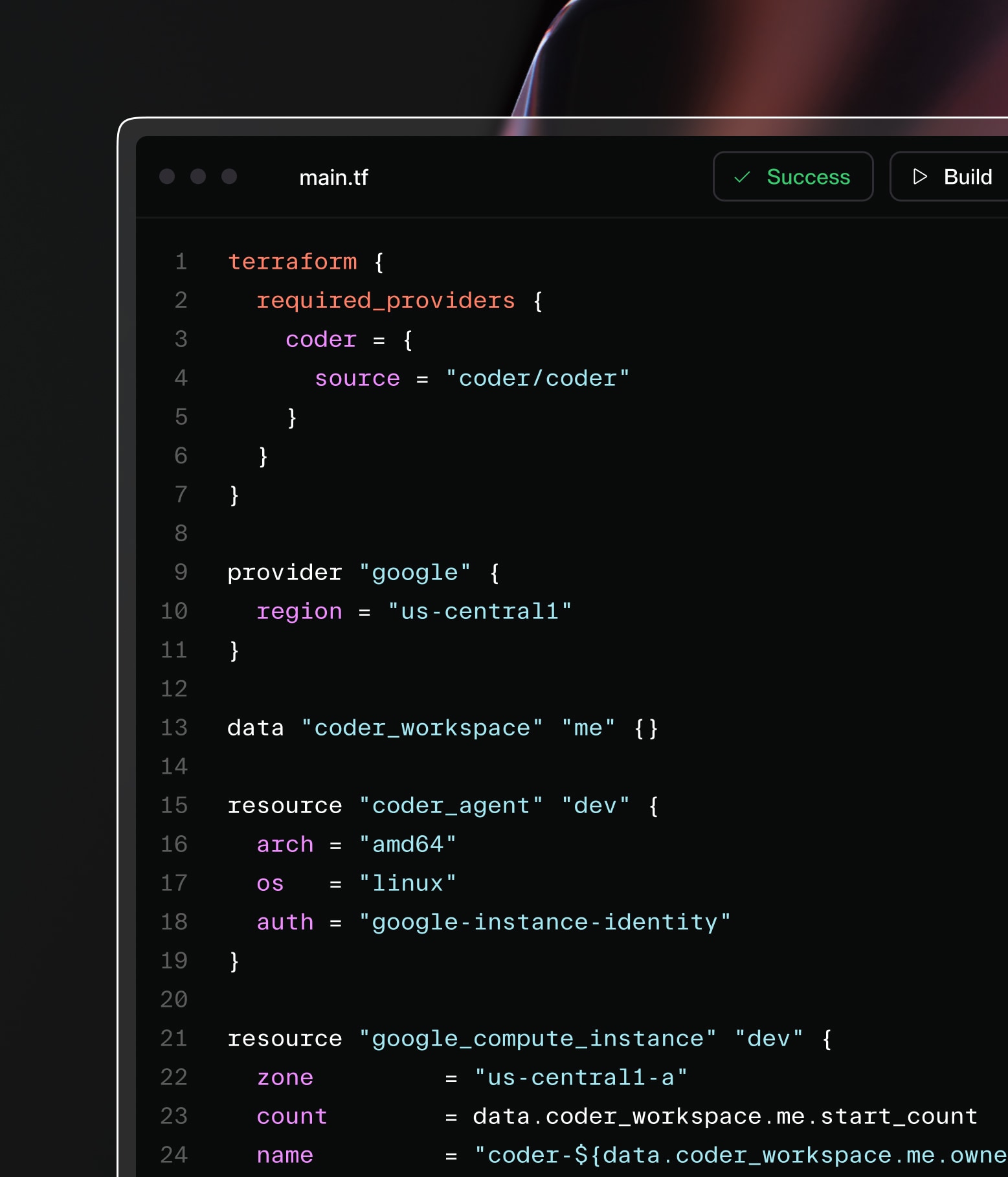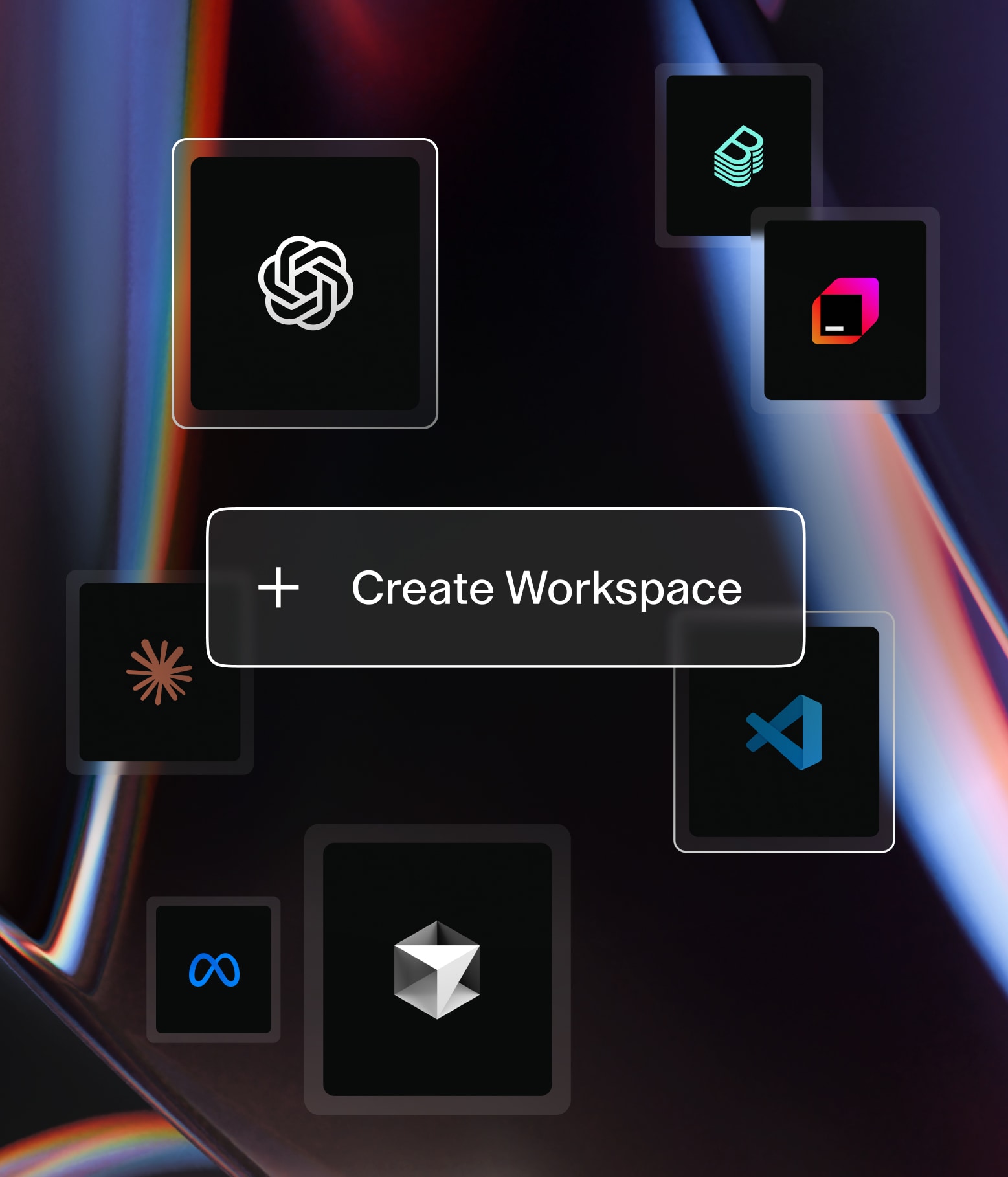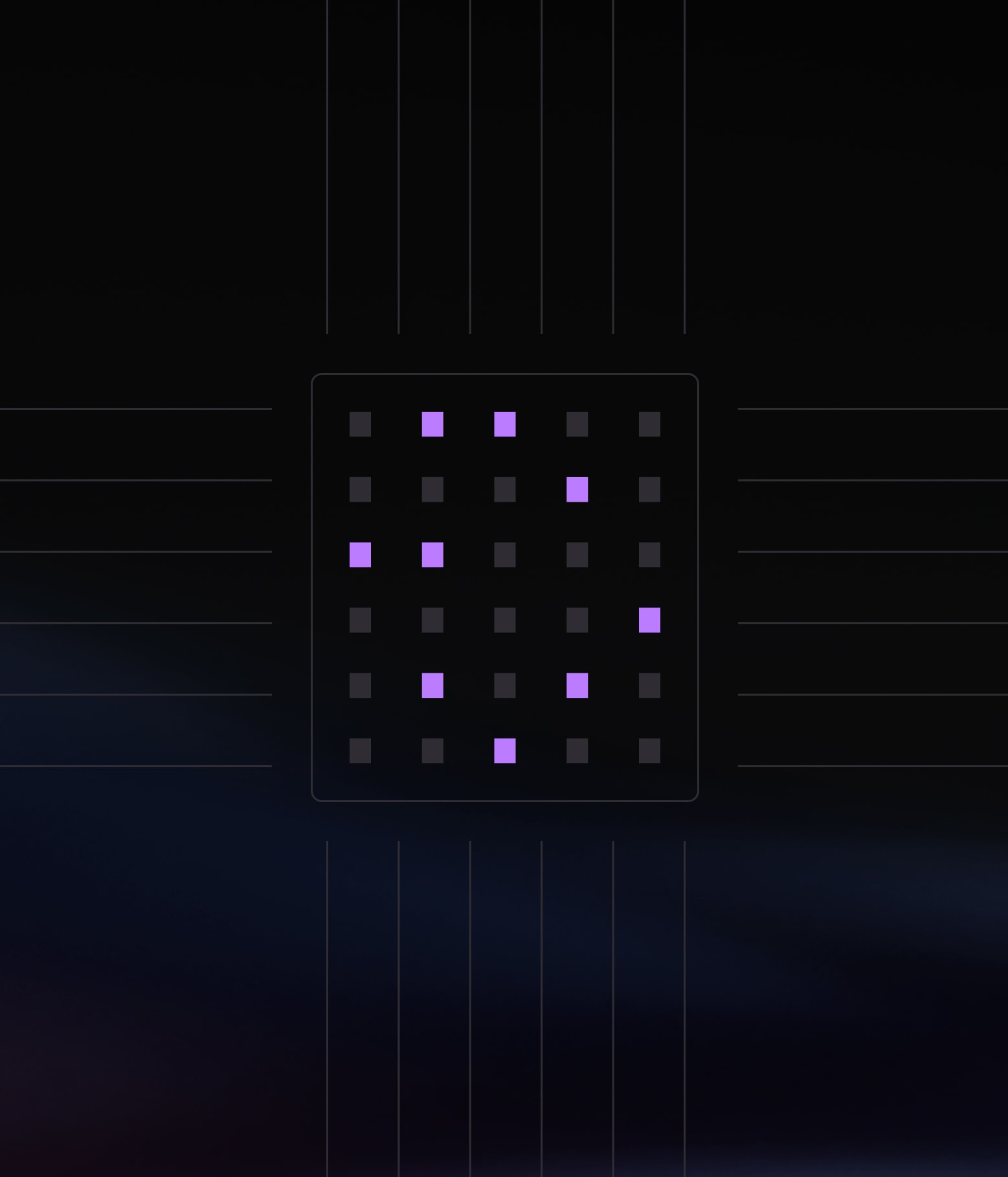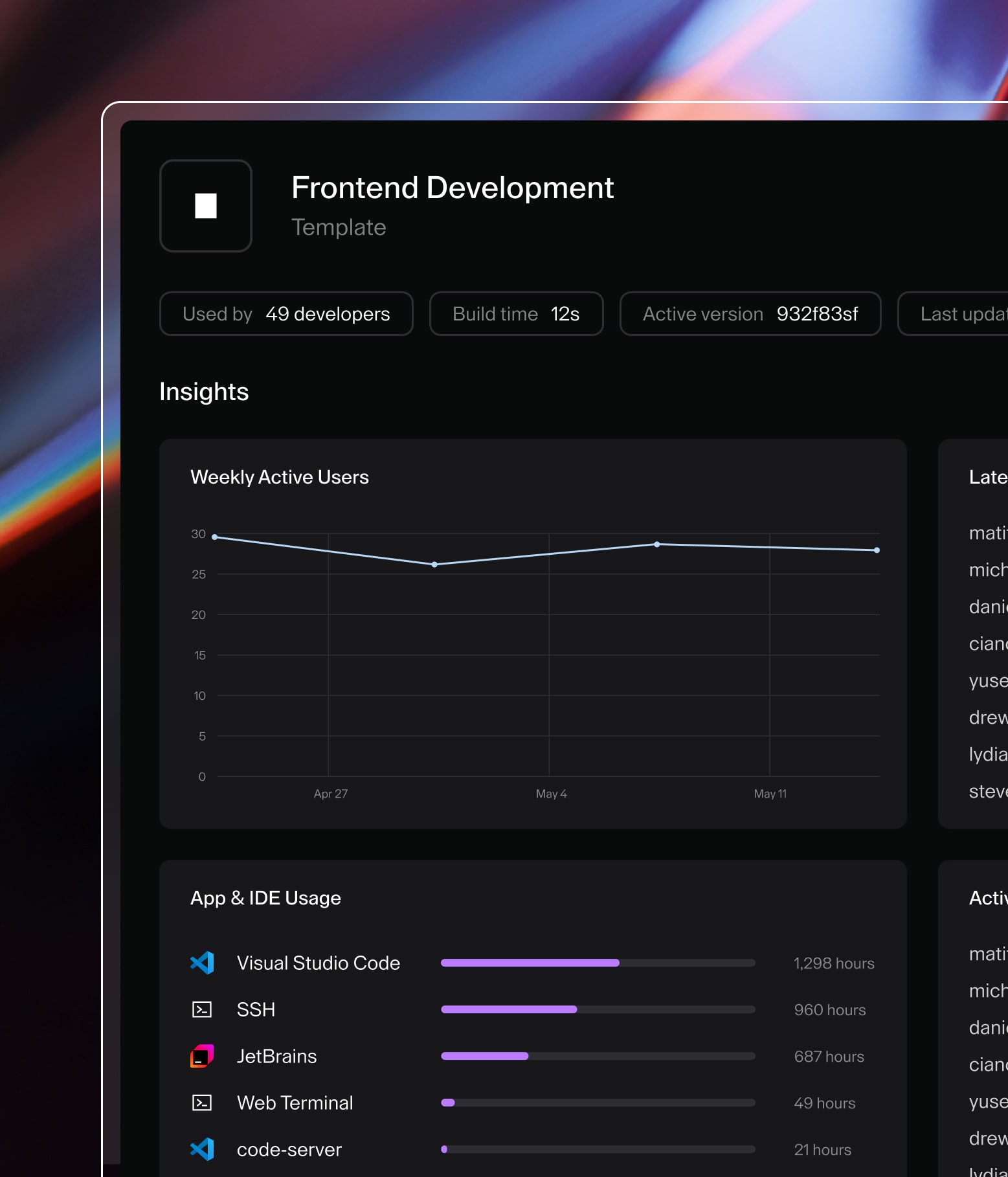Coder Secures and Accelerates Mission-Critical Innovation in the Public Sector






Now, with a highly distributed Discord engineering team, we are incredibly grateful for our partnership with Coder.
Streaming giants and AI front runners choose Coder to give their innovators a premium developer experience.
Big banks, investment firms, and insurance companies rely on Coder to keep their development environments compliant.
Government and defense agencies maintain control over sensitive code and data while enabling fast dev onboarding.